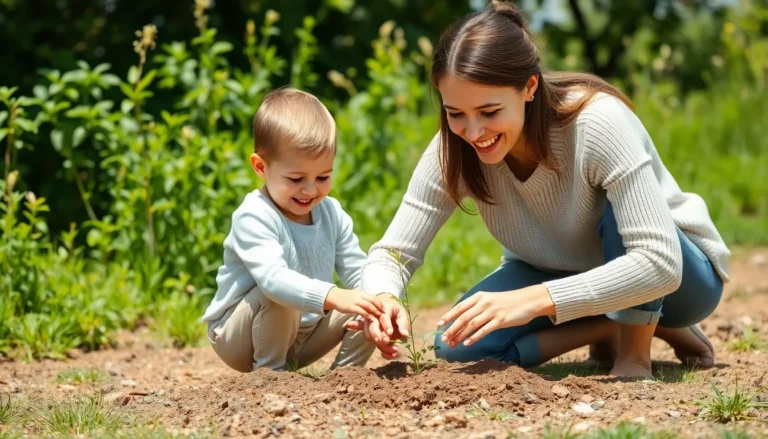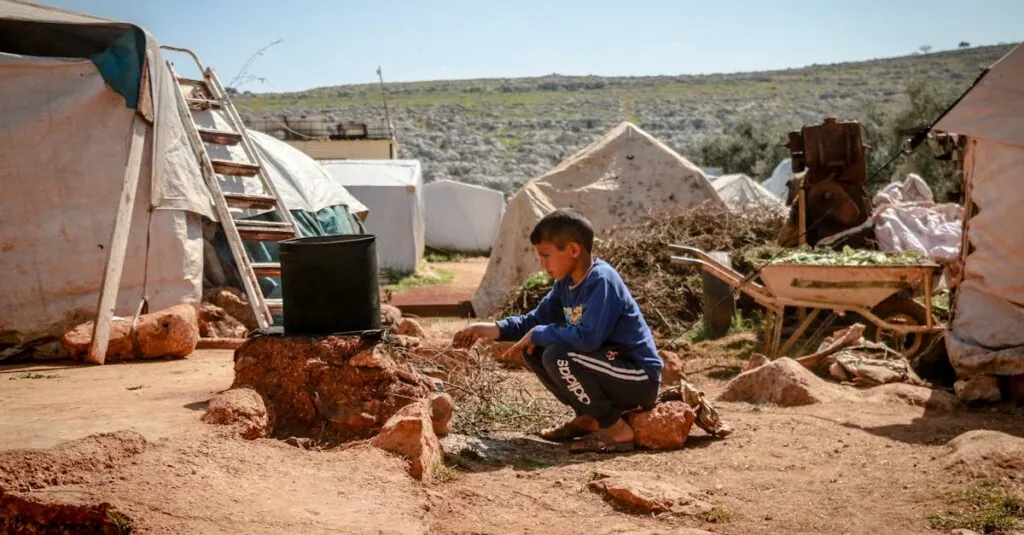Table of Contents
ToggleImagine a world where kids trade in their video game controllers for spatulas and aprons. At kids cooking camp, culinary adventures await as they whip up delicious dishes while having a blast. It’s not just about cooking; it’s about sparking creativity, building confidence, and maybe even mastering the art of flipping pancakes without a mess (well, mostly).
Overview of Kids Cooking Camp
Kids cooking camp offers an engaging environment for young chefs. Participants swap video game controllers for culinary tools, promoting hands-on experience in the kitchen. Excitement fills the air as children explore various cooking techniques and ingredients.
Cooking sessions provide opportunities for creativity and self-expression while learning essential kitchen skills. Each child develops confidence through preparing their own meals under the guidance of experienced instructors. Recipes often include favorites like pizza, cookies, and healthy snacks, appealing to diverse tastes.
Teamwork plays a key role in the camp experience. Kids collaborate on group meals, enhancing social skills and friendships. Additionally, camps emphasize safety and hygiene practices, which are critical when working with food.
Camps often cater to different age groups, ensuring age-appropriate lessons and challenges. Younger children may start with simple tasks, while older kids might tackle more complex dishes. Themes such as international cuisine or seasonal ingredients can enrich the curriculum.
Beyond cooking, camps host activities that foster nutrition awareness and appreciation for healthy eating habits. Children learn the importance of fresh produce, promoting a balanced diet and healthy lifestyle. The culmination of the camp typically features a showcase event where kids present their culinary creations to friends and family, enhancing their pride in their achievements.
Activities guarantee a blend of fun, education, and skill development, making kids cooking camps a rewarding experience for all involved.
Benefits of Kids Cooking Camp
Kids cooking camp offers numerous advantages for young participants. Children gain practical cooking skills that serve them for a lifetime.
Development of Culinary Skills
Participants learn various cooking techniques. Chopping, sautéing, and baking become familiar processes as they explore new recipes. Kids build confidence while preparing their favorite meals, like pizza and cookies. Group projects encourage teamwork, helping them to collaborate effectively in the kitchen. Instructors guide them, providing tips that sharpen their culinary expertise. With hands-on experience, each child develops a sense of achievement in their cooking abilities.
Encouragement of Healthy Eating
Healthy eating habits receive special emphasis during camp activities. Participants gain knowledge about nutrition and the benefits of wholesome ingredients. Cooking with fresh fruits and vegetables helps them make informed choices. Recipe discussions encourage kids to choose healthier options without compromising flavor. Engaging in these discussions develops a positive attitude toward food. The experience ultimately fosters lifelong commitments to nutritious eating, equipping children with the skills to make better choices in their diets.
Activities at Kids Cooking Camp
Kids cooking camps offer a variety of engaging activities that keep children excited and motivated. Participants dive into hands-on cooking classes, where they learn to create meals using fresh ingredients. Experienced instructors guide them through essential techniques like mixing, kneading, and measuring. Recipes include popular favorites such as tacos, smoothies, and cupcakes, allowing for creativity while ensuring delicious results.
Cooking Classes
Cooking classes at kids cooking camp cater to various skill levels. From beginners to more experienced young chefs, everyone finds something suitable. Direct instruction focuses on fundamental techniques like sautéing, baking, and safety practices. Children also explore different cuisines, expanding their culinary horizons. Each class emphasizes fun and learning, fostering a love for cooking. Examples of dishes made include pasta, stir-fry, and fruit salads, engaging kids in both preparation and presentation.
Team-Building Exercises
Team-building exercises play a significant role in the camp experience. Groups collaborate on projects such as preparing full-course meals or themed snack platters. These activities develop communication and cooperation skills, making cooking a shared joy. Kids learn to delegate tasks, problem-solve, and support one another in the kitchen. Experiences also include friendly cooking competitions, enhancing excitement while building friendships. Children leave the camp with improved social skills alongside practical cooking knowledge.
Choosing the Right Kids Cooking Camp
Selecting the ideal kids cooking camp requires evaluating several key factors. Consider the age of the child, as camps design activities tailored to specific age groups, ensuring lessons are suitable and engaging. A camp that aligns with a child’s interests—such as baking, international cuisine, or healthy eating—offers a more enjoyable experience.
Review the camp’s curriculum for variety and depth. Some camps specialize in certain cooking techniques or cuisines, while others provide a broad range of topics that include nutrition education. Look for programs that promote practical skills, helping children learn techniques like chopping, sautéing, and baking.
Instructor experience plays a crucial role in a camp’s quality. Knowledgeable instructors enhance learning through patient guidance and creative approaches. Research trainer qualifications and read reviews from past participants to assess their effectiveness.
Safety and hygiene practices must be a priority. Camps should emphasize responsible cooking through proper techniques and protocols. Programs that include safety education help children understand the importance of maintaining a clean kitchen.
Evaluate the camp’s structure. Camps organized around themes, such as seasonal ingredients, add excitement and keep children engaged. Look for showcases at the end of the camp, where participants present their culinary creations, fostering pride in their achievements.
Budget considerations are equally important. Some camps offer scholarships or financial assistance, making them accessible to more families. Compare costs alongside the provided curriculum to determine if a camp offers good value for the experience.
Ultimately, the right kids cooking camp will nurture a child’s interest in cooking while developing essential skills and confidence.
Kids cooking camps offer a unique opportunity for young chefs to explore their culinary passions while developing essential life skills. Through hands-on experiences and teamwork, children not only learn to cook but also gain confidence and foster friendships. The engaging environment encourages creativity and healthy eating habits, setting the stage for a lifetime of culinary enjoyment.
Choosing the right camp can make all the difference in nurturing a child’s interest in cooking. With a focus on safety and expert guidance, these camps provide a well-rounded experience that goes beyond the kitchen. Ultimately, kids cooking camps inspire a love for food and cooking that can last a lifetime.







